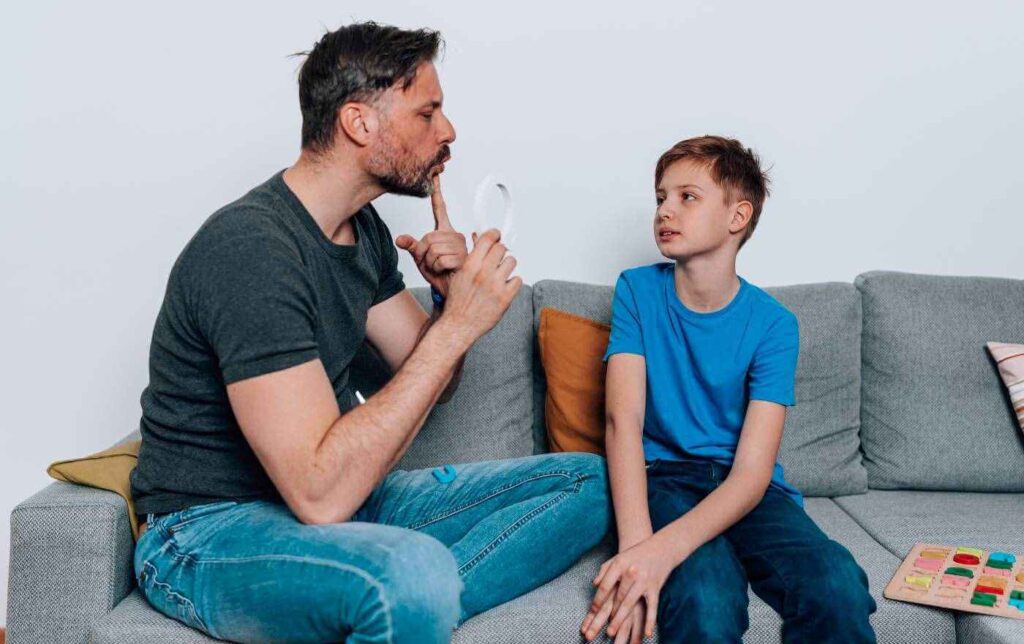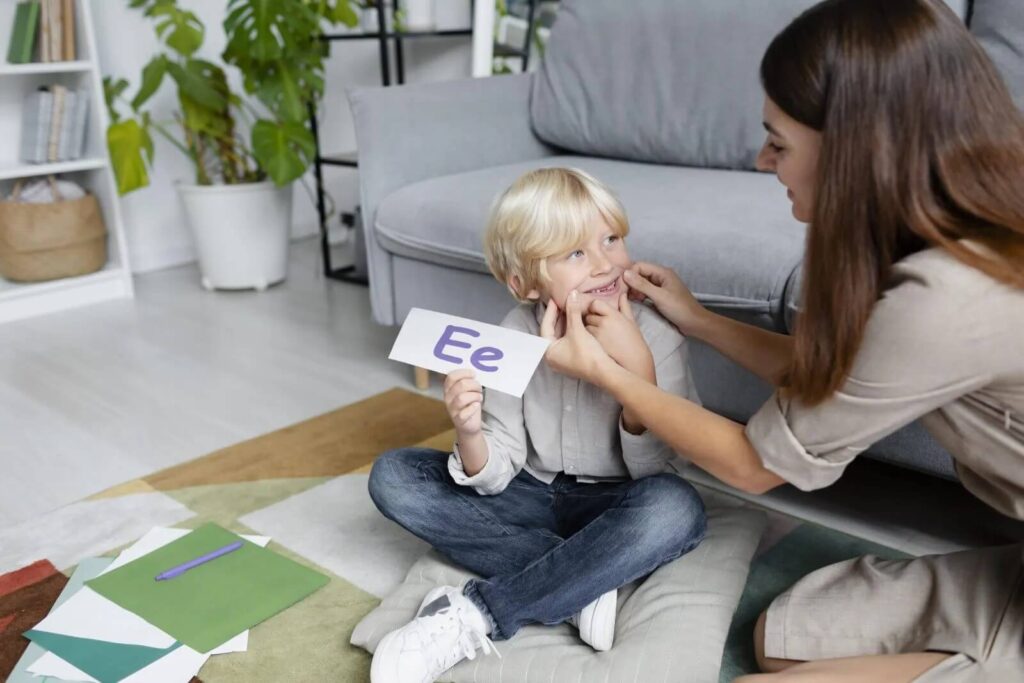Introduction to Speech Therapy
Speech therapy is a vital intervention for children experiencing communication difficulties. These challenges can arise from various conditions, including developmental delays, neurological disorders, or speech impediments. Traditionally, speech therapy has been conducted in person, with therapists working directly with children in clinical settings. However, the advent of technology has paved the way for remote treatment options, raising the question: is remote speech therapy effective for kids?
This article explores the effectiveness of speech therapy at home, examining its benefits and potential drawbacks, and providing insights for parents considering this option for their children.
Remote speech therapy, often delivered via video conferencing platforms, has gained traction not only due to its convenience but also because it allows children to engage in a familiar environment. This familiarity can lead to increased comfort and openness during sessions, potentially enhancing the therapeutic experience. Moreover, parents can easily observe the techniques employed by therapists, allowing them to reinforce learning and practice at home. The flexibility of scheduling sessions around family routines also means that therapy can be more consistent, which is crucial for effective progress.
However, it is essential to consider the challenges that may accompany remote speech therapy. For instance, some children may struggle with the lack of physical presence, which can diminish their engagement or focus. Additionally, technical issues such as poor internet connectivity can disrupt sessions, leading to frustration for both the child and the therapist. It is also important for parents to create an optimal learning environment at home, free from distractions, to ensure that their child can fully benefit from the therapy. Balancing these factors is key to determining whether remote speech therapy is a suitable option for individual needs.
Related: Kids Speech Therapy Near Me

The Rise of Remote Speech Therapy
In recent years, particularly during the COVID-19 pandemic, remote speech therapy has gained significant traction. As families sought to maintain continuity in their children’s therapy sessions while adhering to social distancing measures, many turned to online platforms for support. This shift has led to a broader acceptance of teletherapy as a viable alternative to traditional face-to-face sessions.
Accessibility and Convenience
One of the most significant advantages of remote speech therapy is its accessibility. Families living in rural or remote areas often struggle to find qualified speech therapists nearby. Online therapy eliminates geographical barriers, allowing children to receive expert support regardless of their location. Additionally, remote sessions can be scheduled at times that suit the family, making it easier to integrate therapy into daily routines. This flexibility is particularly beneficial for working parents who may find it challenging to juggle their professional commitments alongside their children’s therapy needs.
Comfort of Home Environment
Children may feel more at ease in their home environment, which can enhance their engagement during therapy sessions. Familiar surroundings can reduce anxiety and promote a more relaxed atmosphere, allowing children to focus on their communication skills without the distractions or stressors associated with unfamiliar settings. Moreover, the home environment can be tailored to the child’s interests, incorporating toys, games, and activities that resonate with them, thus fostering a more enjoyable and effective learning experience. Therapists can also provide parents with strategies to create an enriching environment that supports ongoing practice and reinforcement of skills outside of scheduled sessions.
Technological Innovations
The rise of remote speech therapy has also been bolstered by advancements in technology. With the proliferation of high-speed internet and user-friendly applications, both therapists and families can engage in interactive sessions that utilise multimedia resources. Tools such as virtual whiteboards, educational games, and video demonstrations can enhance the learning experience, making therapy not only more engaging but also more effective. Additionally, many platforms offer features that allow therapists to track progress in real-time, providing immediate feedback and adjustments to therapy plans as needed. This level of interaction can lead to a more personalised approach, catering to the unique needs of each child.

Community and Support Networks
Another noteworthy aspect of remote speech therapy is the opportunity it provides for families to connect with broader support networks. Online communities and forums have emerged, allowing parents to share experiences, resources, and advice with one another. This sense of community can be invaluable, as it helps to alleviate feelings of isolation that some families may experience when navigating their child’s speech challenges. Furthermore, therapists can facilitate group sessions where children can interact with peers facing similar difficulties, fostering social skills and encouraging collaborative learning in a safe and supportive environment.
Effectiveness of Remote Speech Therapy
Research into the effectiveness of remote speech therapy is still evolving, but early findings suggest that it can be as effective as traditional methods. Several studies have indicated that children receiving teletherapy show significant improvements in their speech and language skills, comparable to those who attend in-person sessions.
Individualised Treatment Plans
One of the key components of effective speech therapy, whether conducted in-person or remotely, is the individualisation of treatment plans. Remote therapy allows therapists to tailor their approaches based on the child’s specific needs, goals, and progress. This personalised attention can lead to better outcomes, as therapists can adapt their methods in real time, responding to the child’s reactions and engagement levels.
Engagement Through Technology
Utilising technology in remote speech therapy can enhance engagement. Therapists often incorporate interactive tools, games, and digital resources that make learning fun and engaging for children. These resources can help maintain a child’s interest and motivation, which is crucial for effective therapy. Furthermore, parents can be involved in these sessions, fostering a supportive learning environment that extends beyond therapy time.
Challenges of Remote Speech Therapy
While there are numerous advantages to remote speech therapy, it is essential to acknowledge the challenges that may arise. Not all children may respond positively to online sessions, and certain limitations can impact the effectiveness of therapy.
Technical Issues
Technical difficulties can pose significant barriers to remote therapy. Issues such as poor internet connectivity, software malfunctions, or inadequate devices can disrupt sessions and hinder communication. These challenges can be particularly frustrating for both therapists and children, potentially affecting the overall effectiveness of the treatment.
Lack of Physical Interaction
For some children, particularly those with severe speech or language disorders, the lack of physical interaction may hinder progress. In-person therapy allows for hands-on techniques and demonstrations that may not translate well to a virtual format. Therapists often rely on physical cues and gestures to guide children, which can be more challenging to convey through a screen.

Parental Involvement in Remote Therapy
Parental involvement is crucial in the success of remote speech therapy. Parents play a vital role in reinforcing the skills learned during therapy sessions and providing additional practice opportunities at home. Engaging parents in the therapy process can lead to better outcomes for children.
Training and Support for Parents
Many therapists offer training and support for parents to help them understand their child’s needs and how to facilitate learning at home. This training can include strategies for incorporating speech exercises into daily routines, tips for creating a conducive learning environment, and guidance on how to encourage communication skills during play and everyday activities.
Creating a Supportive Environment
Parents can create a supportive environment by incorporating speech therapy techniques into daily life. Simple activities such as reading together, playing interactive games, or engaging in conversations can reinforce the skills learned during therapy. By actively participating in their child’s speech development, parents can help solidify progress and boost their child’s confidence.
Choosing the Right Therapist
When considering remote speech therapy, selecting the right therapist is paramount. Parents should look for qualified professionals with experience in teletherapy and a proven track record of success. It is essential to ensure that the therapist’s approach aligns with the child’s needs and learning style.
Qualifications and Experience
Parents should verify the therapist’s qualifications, including their education, certifications, and experience in the field. A therapist with a strong background in speech-language pathology and a focus on remote therapy will be better equipped to address the unique challenges and opportunities presented by teletherapy.
Initial Consultation and Assessment
Many therapists offer initial consultations to assess a child’s needs and determine the best course of action. This assessment can provide valuable insights into the child’s specific challenges and help establish a tailored treatment plan. Parents should take advantage of this opportunity to ask questions and gauge the therapist’s approach to remote therapy.
Conclusion: The Future of Speech Therapy
As technology continues to advance, the landscape of speech therapy is evolving. Remote treatment options are becoming increasingly accepted as effective alternatives to traditional in-person sessions. While there are challenges to overcome, the benefits of accessibility, convenience, and comfort cannot be overlooked.
For many children, remote speech therapy can provide the support they need to enhance their communication skills. With the right therapist and active parental involvement, remote therapy can be a valuable tool in a child’s development. As families navigate this new frontier, it is essential to remain open to the possibilities that remote speech therapy offers, ensuring that children receive the best possible care, regardless of their location.





